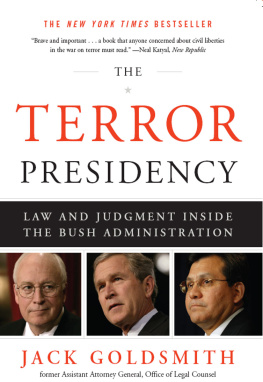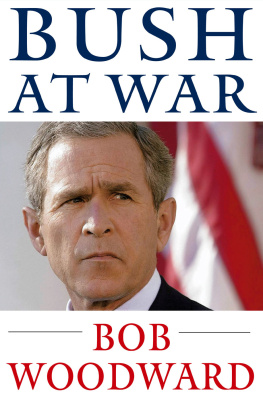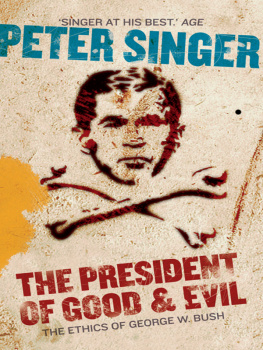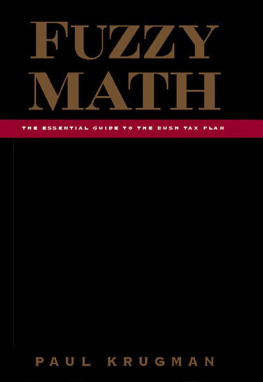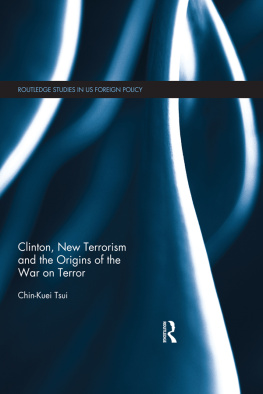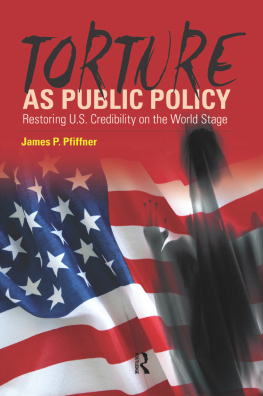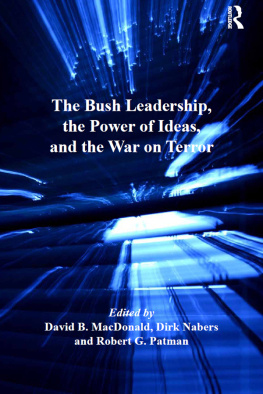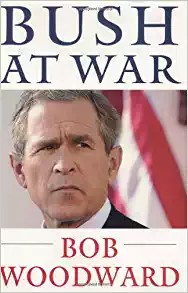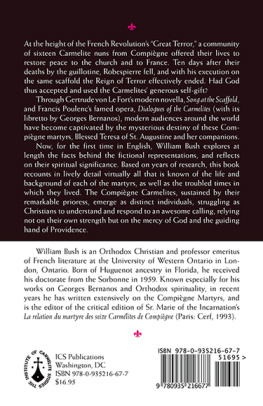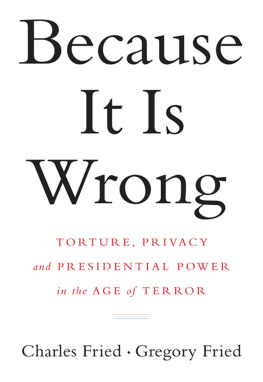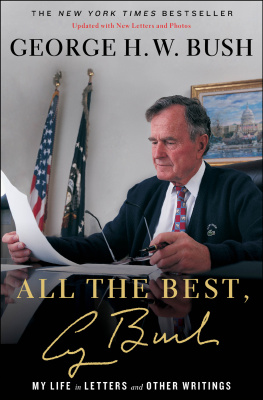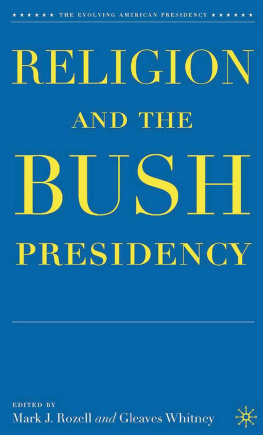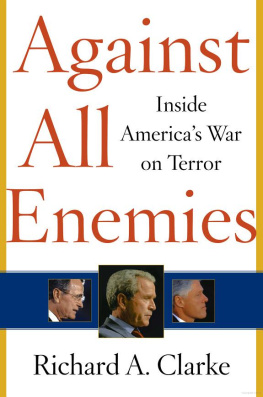More praise for The Terror Presidency
Named one of Slate s best books of 2007
Disturbing and persuasiveit is based upon a thoroughly considered view, one that has taken into account not only historical precedent but the actual circumstances in which the Bush administration was making its decisions. a subtle and judicious appraisal.
Commentary
Goldsmithmakes a strong case that our national security apparatus is overlawyered.
Michael Barone, U.S. News & World Report
The record of Bush and his lawyers on torture is grippingly examinedone of the most interesting and most insightful books yet to come out of the Bush White House.
Chicago Tribune
Goldsmith is one of those rare legal scholars who write with unforced clarity. His arguments are clear, formidable and authoritative. On the long shelf of books written from inside President George W. Bushs administration, none is more fundamentally significant, nor as challenging to the preconceptions of left and right, as Jack Goldsmiths The Terror Presidency .
Los Angeles Times
The record of Bush and his lawyers on tortureis grippingly examined by Jack Goldsmith. Goldsmiths arguments are the more convincing because they are not premised on traditional liberal or civil libertarian views.
New York Times Book Review
Goldsmithprovidesa welcome insiders analysis of policy discussions and legal interpretations after the attacks of Sept. 11, 2001.
National Law Journal
The Terror Presidency is the most gripping and revealing book about the pathology of this White House I have read.
Financial Times
Illuminating. valuable accounta compelling caseGoldsmith argues convincingly that the administration could have cured its legal problems and simultaneously met its security needs if it had worked more cooperatively and openly with the Congress and with others right from the start.
David Gergen, Director of the Center for
Public Leadership at the Kennedy School
of Government at Harvard, Boston Sunday Globe
[ The Terror Presidency ] details an extraordinary storythat of a conservative lawyer who found himself saying no to the president of the United States on some of the nations key intelligence programs in the midst of a war.
Benjamin Wittes, member of the Hoover Institution
Task Force on National Security and Law, New Republic
A careful and thoughtful book.
American Spectator
[ The Terror Presidency ] is superbdeceptively casual and eminently readable, yet profoundly considered and argued. [It] reaches beyond personal memoir to offer a historical comparison of the legal powers available to Presidents in time of war and emergency.
Times Literary Supplement (UK)
This is not the only book about the inner workings of the Bush administration. But for lawyers, it surely will be the most fascinating. A sobering revelation of how Bush lawyers stretched and bent the law in an effort to aggrandize presidential power.
New York Law Journal
Goldsmiths book is more interestingbecause of what it reveals, at times unintentionally, about the inner workings of the administration.
American Prospect
The Terror Presidency will prove valuable beyond the Bush administration.
Federal Lawyer
[This] book is a brisk, well-written, and earnest attempt to deal with some of the knottiest legal problems confronting modern presidents during war-time. No thoughtful reader can come away from [ The Terror Presidency ] uninstructed.
Claremont Review of Books
The Terror Presidency
A LSO BY J ACK G OLDSMITH
Who Controls the Internet? Illusions
of a Borderless World (with Tim Wu)
The Limits of International Law
(with Eric Posner)
The Terror Presidency
L AW AND J UDGMENT I NSIDE THE B USH A DMINISTRATION
Jack Goldsmith

W. W. N ORTON & C OMPANY
New York London
Copyright 2009, 2007 by Jack Goldsmith
All rights reserved
For information about permission to reproduce selections from this book,
write to Permissions, W. W. Norton & Company, Inc.,
500 Fifth Avenue, New York, NY 10110
Library of Congress Cataloging-in-Publication Data
Goldsmith, Jack L.
The terror presidency: law and judgment inside the Bush administration / Jack Goldsmith.
p. cm.
Includes bibliographical references.
1. War and emergency powersUnited States. 2. Rule of lawUnited States. 3. Bush, George W. (George Walker), 1946. Misconduct in officeUnited States. 5. United States. Dept. of Justice. Office of Legal Counsel 6. Executive powerUnited States. 7. War on Terrorism, 2001
8. Human rightsUnited States. I. Title.
KF5060.G65 2007
342.73062dc22
2007034337
ISBN: 978-0-393-06916-7
W.W. Norton & Company, Inc.
500 Fifth Avenue, New York, N.Y. 10110
www.wwnorton.com
W.W. Norton & Company Ltd.
Castle House, 75/76 Wells Street, London W1T 3QT
T O M Y P ERSON
That comprehensive and undefined presidential powers hold both practical advantages and grave dangers for the country will impress anyone who has served as legal adviser to a President in time of transition and public anxiety.
Associate Justice and former Attorney General Robert Jackson, concurring
in Youngstown Sheet & Tube Co. v. Sawyer, 343 U.S. 579 (1952) .
CONTENTS
PREFACE
I t is customary for senior officials in the Department of Justice to hang portraits of former Attorneys General in their office. I qualified for the portrait privilege as the head of the Justice Departments Office of Legal Counsel (OLC), a job I held from the fall of 2003 until I resigned, less than ten months later, in July of 2004. Though little known outside the government, OLC holds an exalted status within it as the chief advisor to the President and the Attorney General about the legality of presidential actions. This small office of twenty-two lawyers determines whether the governments most important and sensitive plans are lawful, and thus whether they can be implemented.
When I came to OLC three years into President Bushs first term, the most popular Attorney General portraits had been taken. On the wall across from my desk in my OLC office hung a painting that no one else wanted: that of Elliot Richardson, Richard Nixons third Attorney General. Richardson was a distinguished lawyer who served as Attorney General for five months before resign
At first, I paid little attention to the beady stare from behind the oversized eyeglasses in Richardsons portrait. Two months into my job, however, I had thought a lot about the sixty-ninth Attorney General. During those eight weeks, I was briefed on some of the most sensitive counterterrorism operations in the government. Each of these operations was supported by OLC opinions written by my predecessors. As I absorbed the opinions, I concluded that some were deeply flawed: sloppily reasoned, overbroad, and incautious in asserting extraordinary constitutional authorities on behalf of the President. I was astonished, and immensely worried, to discover that some of our most important counterterrorism policies rested on severely damaged legal foundations. It began to dawn on me that I could notas I thought I would eventually be asked to dostand by or reaffirm these opinions.
My first reaction to the opinions was to draft a resignation letterthe first of three such letters I would draft during my nine and a half months of service. I did so mainly because I didnt think the White House or the Attorney General would appreciate the new OLC boss questioning the legal framework for their important counterterrorism work of the past two years. I also worried, more selfishly, that dirtying my hands with this mess would stain my professional reputation no matter how I acted. But I soon realized I could not quit. We were in the midst of a war in which many had lost their lives and scores had risked professional reputations by making thorny wartime decisions. I had knowingly taken a difficult job at a difficult time, and had promised to uphold the laws of the United States. I couldnt just run away at the first sign of trouble. So I decided to try to fix the opinions to save as many of the policies that a sound legal analysis would support. I was pretty sure, in December 2003, that this decision would put me on a collision course with my superiors. But I figured it was more consistent with my oath of office and professional responsibilities, and that my superiors would let me know when I should leave.

